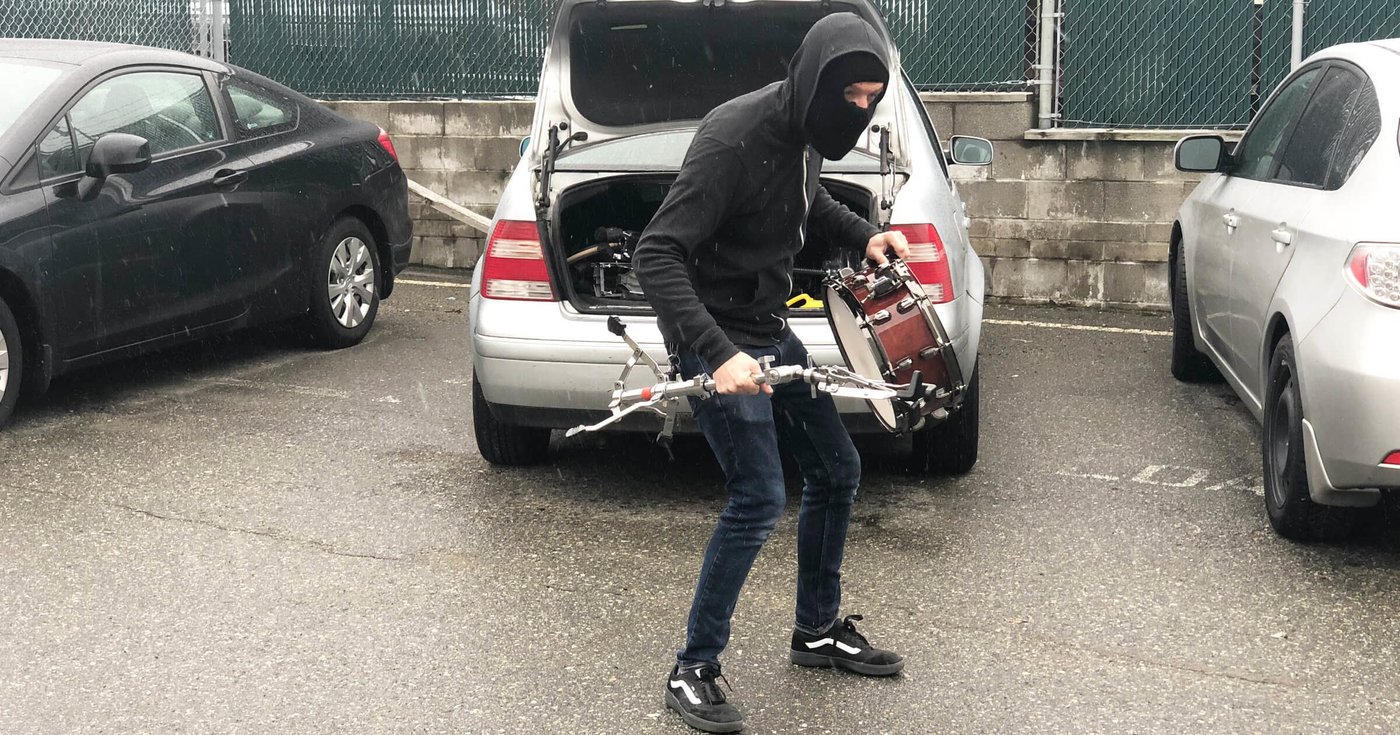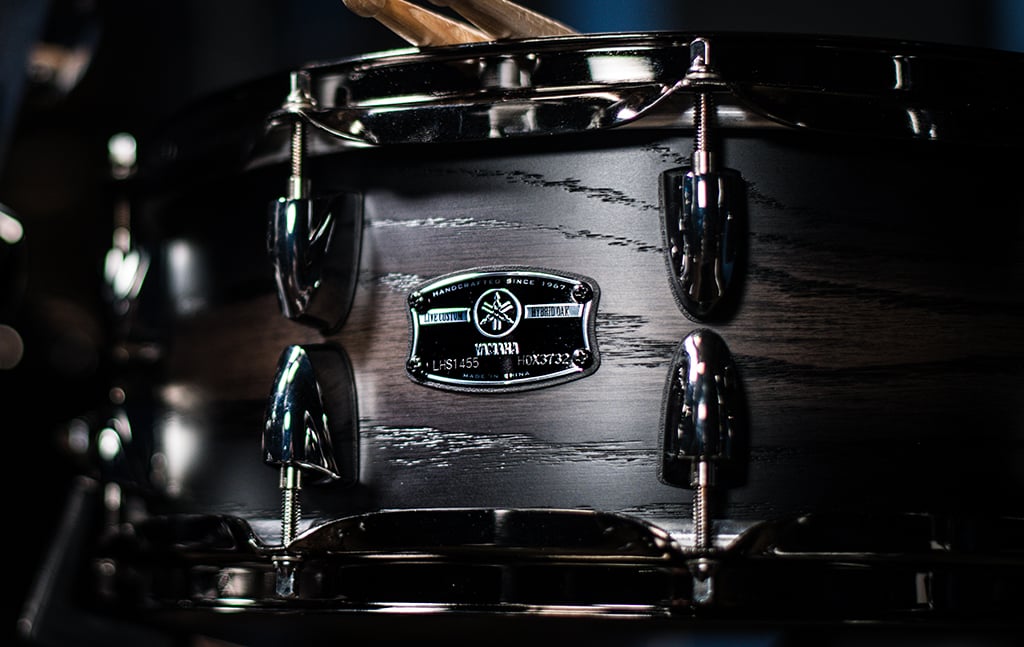
If you’re looking for tips on recovering your stolen drums, read on.
One of the worst feelings in the world is opening the door to your van or rehearsal space and realizing your drums are gone. Do you call the police? Put up posters offering a reward? Resort to vigilante justice? You might be kicking yourself for leaving your gear unattended, or you might be furious because no matter how careful you were, someone still managed to make off with your stuff. Right now, it doesn’t matter how or why it happened: the number one priority should be to stay calm and take action as soon as possible.
Did someone have the audacity to steal your drums? Is Batman not responding to the Bat Signal? By the end of this article, you’ll know exactly what you should do next…and how you can prevent this from happening again.
Before you touch anything, document the scene of the crime. Are there broken windows on your vehicle? Did someone pry open the door to the room? Retired law enforcement officer Michael Weightman recommends sending photographs of your equipment and of the scene to the authorities as soon as possible. “You can even do your own detective work and look for video cameras in the area that may help the police.”
Call the non-emergency line and talk to the police. The more specific details you can provide about your gear and the theft, the more likely it is the police can help you. Do you have the serial numbers? Can you give them a list of missing items? How much are your drums worth? Do you know approximately when the theft happened? Where were they stolen from? Is there clear evidence of a break-in?
Replacing stolen drums can get extremely expensive. Basic auto insurance won’t cover items stolen from inside a vehicle – but home insurance might. Whether your drums were stolen from a vehicle, a rehearsal studio or your home, you can choose to file a claim with your homeowner’s or renter’s insurance company, but know that your fees could increase as a result.
If you have extended coverage like scheduled personal property insurance, you may be able to cover belongings kept outside of your home, but it depends on your plan. If you’ve specifically insured your drums through your local musicians’ union or a private musician’s insurance company, you have the best chance of being reimbursed for your loss.
Weightman recommends checking with your homeowner’s or renter’s insurance company to find out what your plan actually covers.
If they’re going to try and sell them online, thieves often list stolen goods within 24 hours of the theft. Check Craigslist, Kijiji, Facebook Marketplace, Ebay, Reverb.com, and any community sales pages. Talk to your local pawn shops, flea markets and music stores as well. If you can match the serial numbers you can prove ownership, and if the shop owner refuses to give your gear back at no cost, the police should be able to help as long as you’ve filed a police report.
However, there may be specific pawn shop laws where you live. If the situation is complicated and you’re still unable to retrieve your stolen stuff, you may be able to take legal action – but it’s your call on if it’s worth going to court.
Sometimes sharing photos of your stolen equipment on social media can help you recover it faster. Start by posting on your personal profiles and community music groups. You never know: someone might have seen something, and other musicians can keep an eye out on local sales sites and groups. Try to avoid mentioning the value of the drums as the thief might have no idea what they cost. If you have to ‘buy your gear back’, it’s better if the seller thinks something is worth $100 rather than $500.
However, Weightman says you may not have to dip into your pocket. If you see someone with your gear and they insist they purchased it from someone else, “they are still in possession of stolen property and could be charged by the police. Contact your local jurisdiction and provide them with the police report file number from when you reported them stolen.”
You don’t want it to happen again. No matter how careful we are, sometimes there’s nothing we can do to prevent a theft. But it can’t hurt to step up our defense. The main thing to remember is that thieves will take any opportunity they can get, and drums can be stolen in minutes. Someone on foot can only carry so much, but professional thieves can work quickly in teams and can make off with a lot of heavy gear.

*Special thanks to Michael Weightman, retired RCMP member and 20-year auto crime prevention and road safety professional with the Insurance Corporation of British Columbia, for his contributions to this article.
Samantha Landa currently drums with Conquer Divide and has been featured by outlets such as Sick Drummer Magazine and DRUM! Magazine. Sam proudly endorses Mapex Drums, Sabian Cymbals, Evans Drumheads and Los Cabos Drumsticks.


By signing up you’ll also receive our ongoing free lessons and special offers. Don’t worry, we value your privacy and you can unsubscribe at any time.
We use cookies for traffic data and advertising. Cookie Policy »